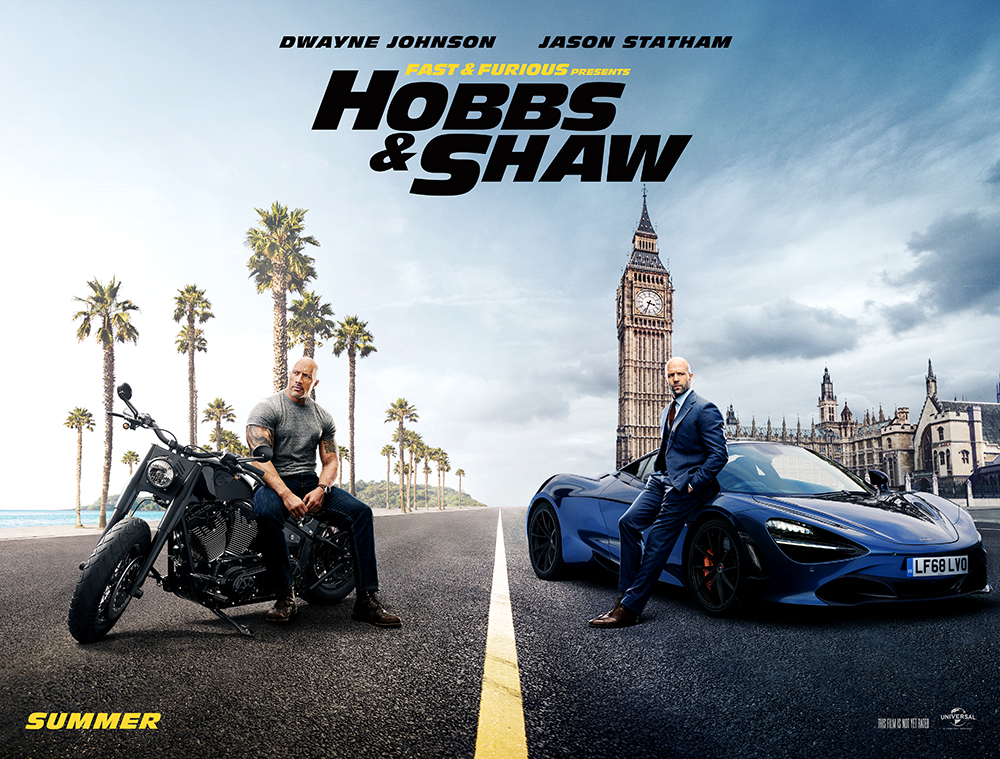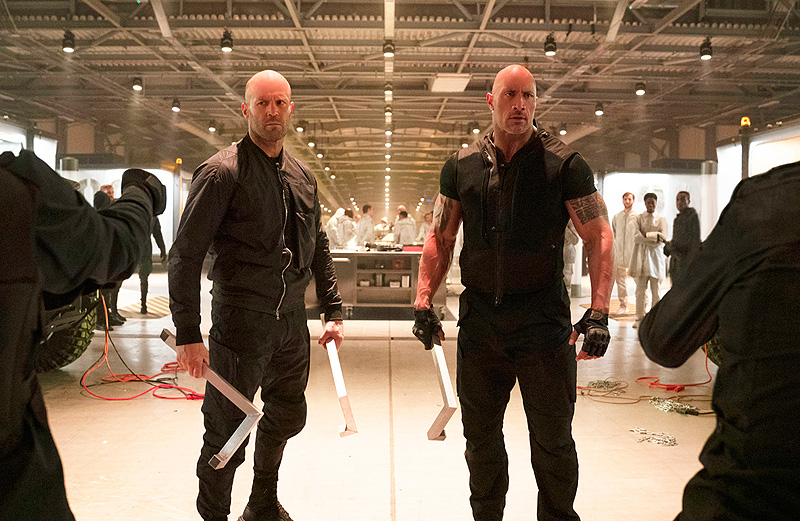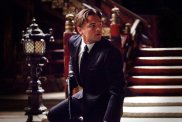Universal Pictures invited ComingSoon.net to speak 1:1 with Fast & Furious franchise mastermind Chris Morgan about the big budget spinoff Fast & Furious Presents: Hobbs & Shaw, which is now playing in theaters everywhere. He also spoke frankly about the demise of Universal’s Dark Universe monster movies. Check out the full interview below!
RELATED: Fast & Furious Presents: Hobbs & Shaw Review
In addition to Johnson and Statham, Vanessa Kirby (The Crown), Eiza Gonzalez (Baby Driver), Eddie Marsan and Idris Elba (The Dark Tower, Avengers: Infinity War) also star.
Directed by Deadpool 2‘s David Leitch, the film will follow Dwayne Johnson’s Diplomatic Security Service agent Luke Hobbs and Jason Statham’s assassin Deckard Shaw. The spin-off features a script from Chris Morgan, who has worked on the franchise since Tokyo Drift in 2006.
Ever since hulking lawman Hobbs (Johnson), a loyal agent of America’s Diplomatic Security Service, and lawless outcast Shaw (Statham), a former British military elite operative, first faced off in 2015’s Furious 7, the duo have swapped smack talk and body blows as they’ve tried to take each other down. But when cyber-genetically enhanced anarchist Brixton (Idris Elba) gains control of an insidious bio-threat that could alter humanity forever — and bests a brilliant and fearless rogue MI6 agent (The Crown’s Vanessa Kirby), who just happens to be Shaw’s sister — these two sworn enemies will have to partner up to bring down the only guy who might be badder than themselves.
Hobbs & Shaw blasts open a new door in the Fast universe as it hurtles action across the globe, from Los Angeles to London and from the toxic wasteland of Chernobyl to the lush beauty of Samoa.
Johnson produces alongside Dany Garcia and Hiram Garcia through Seven Bucks Productions. Statham, Neal H. Moritz for Original Film and Chris Morgan for his eponymous production company also produce, with executive producers Kelly McCormick, Steve Chasman, Amanda Lewis, Ainsley Davies and Ethan Smith.
RELATED: CS Interview: Director David Leitch Talks Hobbs & Shaw
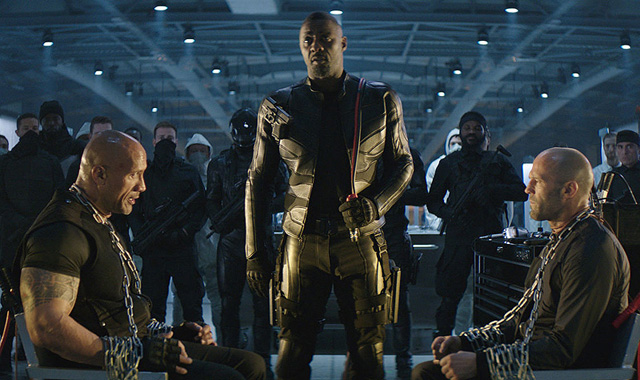
ComingSoon.net: The “Fast” franchise has had elements like the God’s Eye or remotely high jacking 100 cars, but this spinoff has definitely the most overt sci-fi elements with the body modification and the secret techno order. How do you juggle far out elements like that and still have it retain some grounding as a “Fast” movie?
Chris Morgan: The thing that is most important in the “Fast and Furious” world is not actually the things that most people think they are. The action is amazing, and that’s great and I am a huge action fan and I love it, but the the heart of the “Fast” franchise is this moral code and this emotional bond at the center of every character that believes in their family, whether they are directly related or just friends, but they represent the people you are with and you can build your own family. They believe that your love for family makes you stronger. So there’s a very grounded, emotional core at the heart of all of these movies and all of these characters, which allows us to get away with a little bit more heightened sparkle of the action things. It also allows us to blend genres a little bit. In “Fast 5”, we had this grounded emotional story of Mia Toretto is pregnant and she and Brian are on the run with Dom and what are they going to do when the answer is they use their skillset to pull off the biggest heist they can. They get enough money to last them the rest of their lives and they just disappear and live their lives happily. In this movie, the problem is dictating slightly different genre, which is we have these two alpha heroes, Hobbs and Shaw. They have different styles. They’d like to solve the dilemma of the movie their own way. They definitely do not want to work together. We needed a villain who could come in and beat down these two incredibly powerful characters so badly to the point that they have to concede the only way to end the threat is if they just suck it up and work together. The last thing they want to do. So towards that end, who do you have to beat Dwayne Johnson and Jason Statham, right? You bring in Idris Elba, who’s an incredible actor, and on top of it, you give him a little bit of slightly futuristic military boosts. You give him a little bit of super soldier. That’s the reason for the sci-fi superhero nod in this movie, is it supports the problem that the guys need to fix within themselves.
CS: Arnold Schwarzenegger had that similar problem in his career. Like, who could kill Arnold Schwarzenegger? Maybe an alien? Maybe a robot made out of knives?
Morgan: Except that none of those could do the job.
CS: No, you can’t kill Arnold. You can’t kill The Rock, either.
Morgan: Nor should you.
CS: Speaking of which, this is a PG-13, so obviously, you’re trying to make it as accessible as possible. With David coming from a hard-R background, was there any tempering of any ideas that you or him had that were pushing it a bit much? Like maybe The Rock shouldn’t rip that guy’s head off and play basketball with it, stuff like that?
Morgan: Yeah, I’ll say in two categories specifically—violence, right? So we have an ancient weapons battle in our Samoa portion of the movie, where Hobbs and his brothers go out and lay the smackdown on these young mercenaries. We shot a lot of that, and a lot of it is pretty violent because it was leaning into the truth and the fun of a weapons fight. That was something we had discussions about as well. It’s like, “yeah, he can’t actually bite that guy’s face like that,” or “yeah, I can’t show blood like that,” you know? David was great. David totally understood it. Language was the other thing, too. With a PG-13 rating, there are certain limits, and one of the funny ones is you are allowed to use the F-word once in a PG-13 movie as long as it’s not actually relating to the sexual act. As long as it’s a curse word. Generally, we give it out as an honorific. We know we got one, and so in the movies we always try and pick a character, give it to them and make it something fun. We did something fun on this one, as well, but yes, that was another thing, too. With Dave coming from “Atomic Blonde” and “Deadpool 2” and “John Wick”, and he was 100 percent on board and great with it, but it was funny to be like, “yeah, I don’t know about the headshot, you know?”
CS: Yeah, not so many elbow jabs to the throat.
Morgan: Yes. But his reaction was priceless. He was like, “Really? But it’s not even—and he’d be like, “but he’s still hitting him with the thing.” I’m like, “I know, I know, but it’s what the rules are.” It was fun.
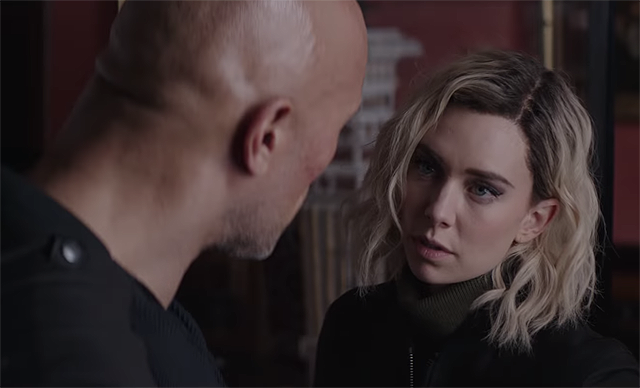
CS: What was it like collaborating with Drew Pearce on the screenplay? Did you guys want him specifically to bring a little bit of that British flavor to the film?
Morgan: For sure. We brought Drew on at a point where I’m working and I’m kind of doing a double shift on this as the writer and the producer, and Dave had been working with Drew as well. We originally brought him in to help with a many hands kind of situation. “While we’re dealing with one thing here, can you lay out this and we’ll do this?” And it was great. It was a great collaboration and he’s super talented and super fun. The side benefit of that is, he is also British, right? Being able to get some accurate slang and vernacular with the Shaw family specifically was just an added benefit.
CS: Is it true that Shane Black was considered to direct at one point?
Morgan: I’m sure that is absolutely probably true. I love Shane. Shane’s awesome. He’s done some of the greatest movies of all time.
CS: What do you think would’ve been the difference between the David Leitch version and the Shane Black version of “Hobbs & Shaw”?
Morgan: I would say probably the comedy level would be a little bit different. I mean, listen, I think they’re both incredibly talented. Shane has had a great impact on my career just by being the beneficiary of watching his films. I think there would be two different movies, and I’d love to see what the differences would be. We specifically headhunted Dave for this because he’s done such an amazing job with… I mean, the choreography in “Wick” is incredible. The “Atomic Blonde” stairwell fight with Charlize. His stories have swagger and they’ve got color and they’ve got the soundtracks that are awesome. We wanted to make sure that this movie felt tonally akin to “Fast” because it does happen in the “Fast” world and it is a “Fast” timeline with things that, like a giant spider web, will connect around the “Fast” universe. But we also wanted to give it a slightly different flavor as well, and I think Dave’s pace towards that really, really meshed well.
CS: Speaking of those connections, you have Hobbs’ daughter draw a family tree with a question mark by her mom. Is that a seed that you’re planting for future films?
Morgan: Correct. 100 percent. Of course, always. Yeah. You can’t leave a question mark and not wonder who that is.
CS: I’m sure you can’t reveal this, but is there an actress who could be formidable with Dwayne?
Morgan: Yes. 100 percent. And I also can’t reveal it. But yes, there could be.
CS: Who else from the “Fast” family do you think is right for their own spinoff, if this one’s a success?
Morgan: Oh god. We’ve discussed. We’re a very collaborative franchise, and we like hanging out. We’ll end up spending a lot of time daydreaming with the studio and the cast and the crew and everybody as we’re making these films. There are so many good stories for all of these characters. Some things are in the works with the studio, but I will let them announce them in their own time. Pick your favorite characters and know that we have thought about stories, back stories. Maybe down the road if the audience is willing to accept a growing Fast universe, then maybe we’ll be fortunate enough to tell some more of those stories. Do you have a favorite you’d like to see?
CS: Tej and Roman.
Morgan: Yeah, yeah, yeah.
CS: This is a little bit of a tough question, but it’s actually something I had an issue with in “Avengers Infinity War” as well, where they had Vision with this stone and it’s you just kill Vision then you don’t have to risk the lives of thousands of Wakandans, and actually the whole universe. You have a similar situation in this movie where you have Vanessa with this virus, if you just burn Vanessa’s body you don’t have to risk Dwayne Johnson’s whole family. How do you reconcile that conundrum as a screenwriter?
Morgan: We had a lot of discussions about that, from the initial conceit of the idea all the way through production. In fact, there’s a great sequence in the movie where they confront that. I think the idea is if you give up hope, then you’ve already lost, right? Hobbs has a mission to bring this virus in. Shaw is out there to save his sister. They both have those agendas, and they discuss it. The most important thing is, Hattie is ready to do it. She is. When things get dark and hope seems to be fading, she is ready to do it. Now thankfully, we never reached that moment where our characters had to make that decision because that’s a scary decision for a character like Hobbs to have to make.
CS: Right, it is.
Morgan: But they never got there. So I think the answer to the question for Hobbs and for Shaw would be, “We may have to face that, but we don’t have to face that right in this moment, right? Until then, we just keep pushing.” I mean, they’re Shaws. They never, ever, ever give up.
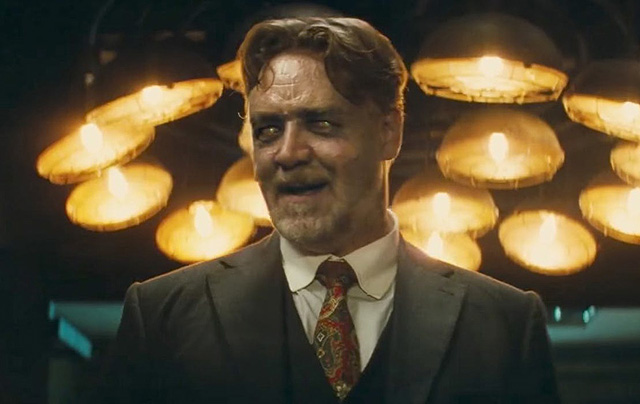
CS: I wanted to talk a little bit, if you’re open to it, about the Dark Universe. How far along were you guys on “Bride of Frankenstein”? Because I heard you were actually building sets and stuff.
Morgan: I mean, we had a script and we were deciding on it with the studio. We weren’t building sets or anything like that. I don’t believe we were that far with that. Although, I have to think back, too. Actually, that is kind of switching on a different part of my brain at the moment. I’d have to look back and remember. Yeah, I’d have to look back and remember about that. But what was the question about it, specifically, Dark Universe?
CS: What interested me is they brought you on and your whole thing is doing these big four quadrant movies. From the get-go a lot of folks on the internet with their pitchforks saying, “Oh, they shouldn’t be action movies, they should just be horror movies.” How were you trying find a balance between what you’re really good at –making four-quadrant blockbusters- and what the people screaming on the internet wanted, which was straight-up monster movies?
Morgan: Well, I think the only agenda and the only defense for people’s expectations of any type of movie is in the work itself. So the answer is, do something great, and then is it a great movie and can you build from that? I think with the Dark Universe the lesson that became very clear was putting it all together too quickly as a universe. It doesn’t naturally want to happen that way. It wants to happen with one movie that’s great, and then you let that build love and support and grow it. And I think that’s the lesson that Universal and we have taken away. Now it’s kind of the way that those monster movies are rolling out. Build it with love and care.
CS: Was there one specifically in that universe that you so wanted to do, that you’re sort of pissed that you didn’t get a chance to put that on screen?
Morgan: Well, never say never, and we’ll see what happens with it, but for me, “Van Helsing.”
CS: Were you a big Peter Cushing fan?
Morgan: I mean, who isn’t? Who isn’t?
Hobbs & Shaw
-
Fast & Furious Presents: Hobbs & Shaw
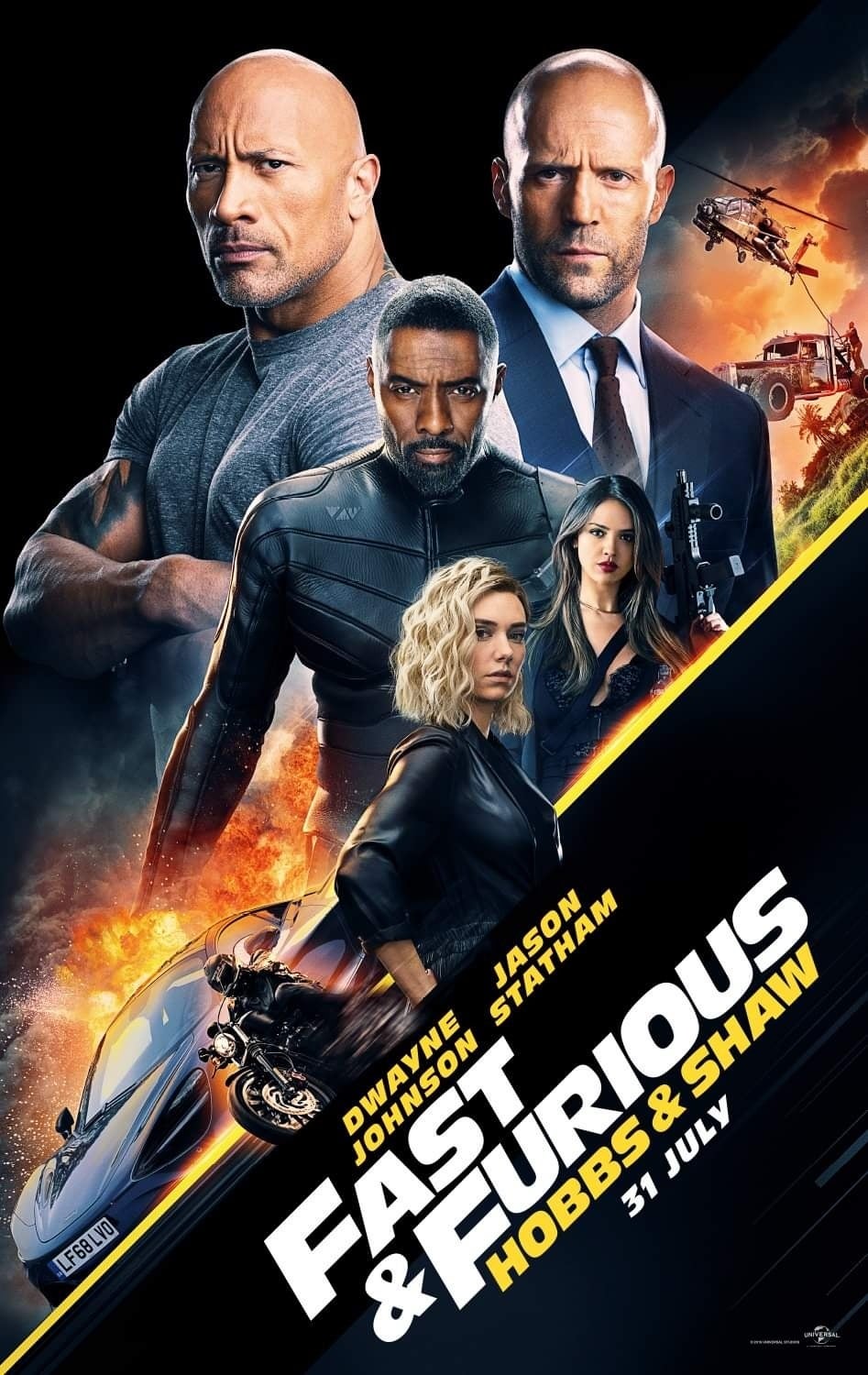
-
Fast & Furious Presents: Hobbs & Shaw
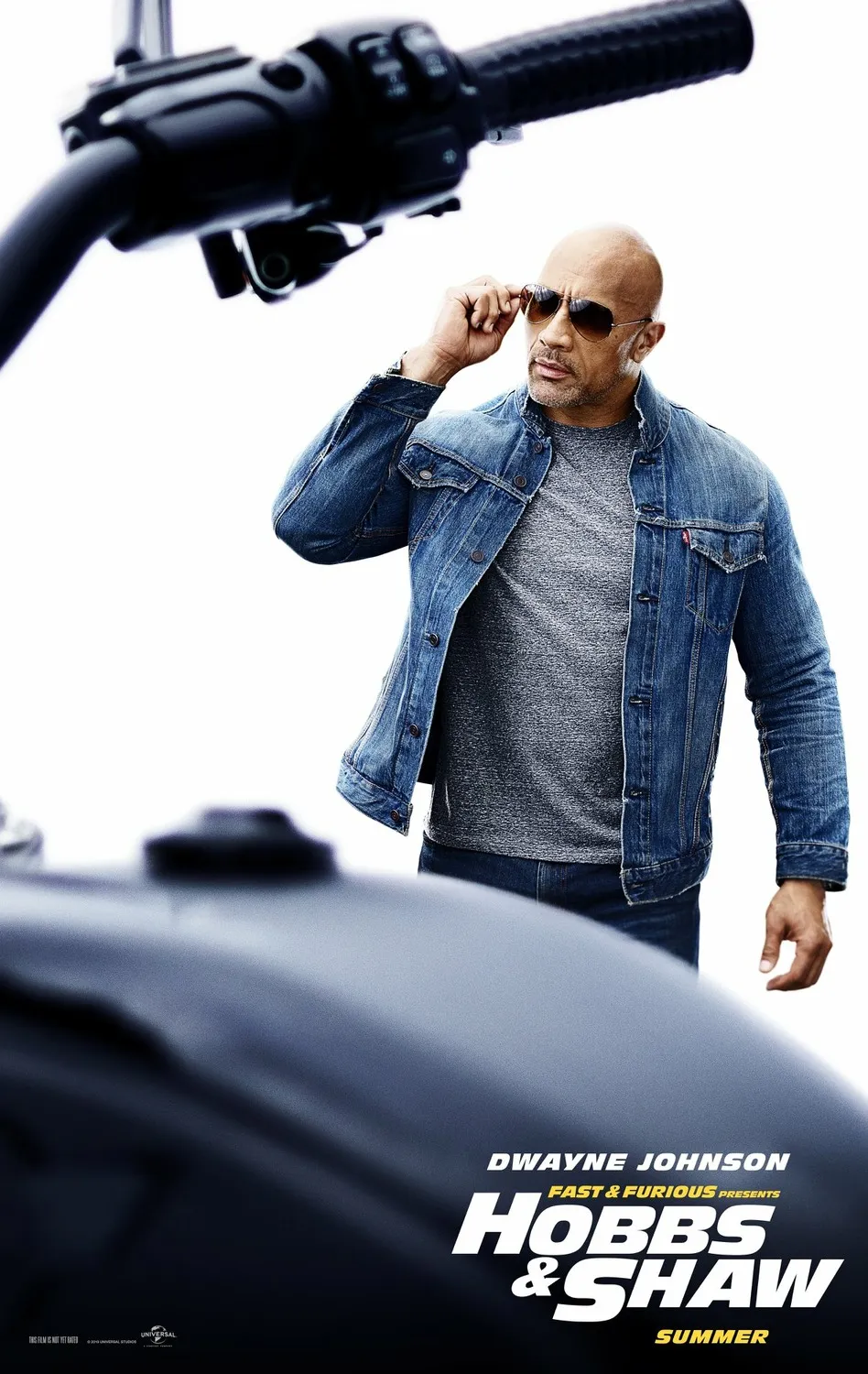
-
Fast & Furious Presents: Hobbs & Shaw
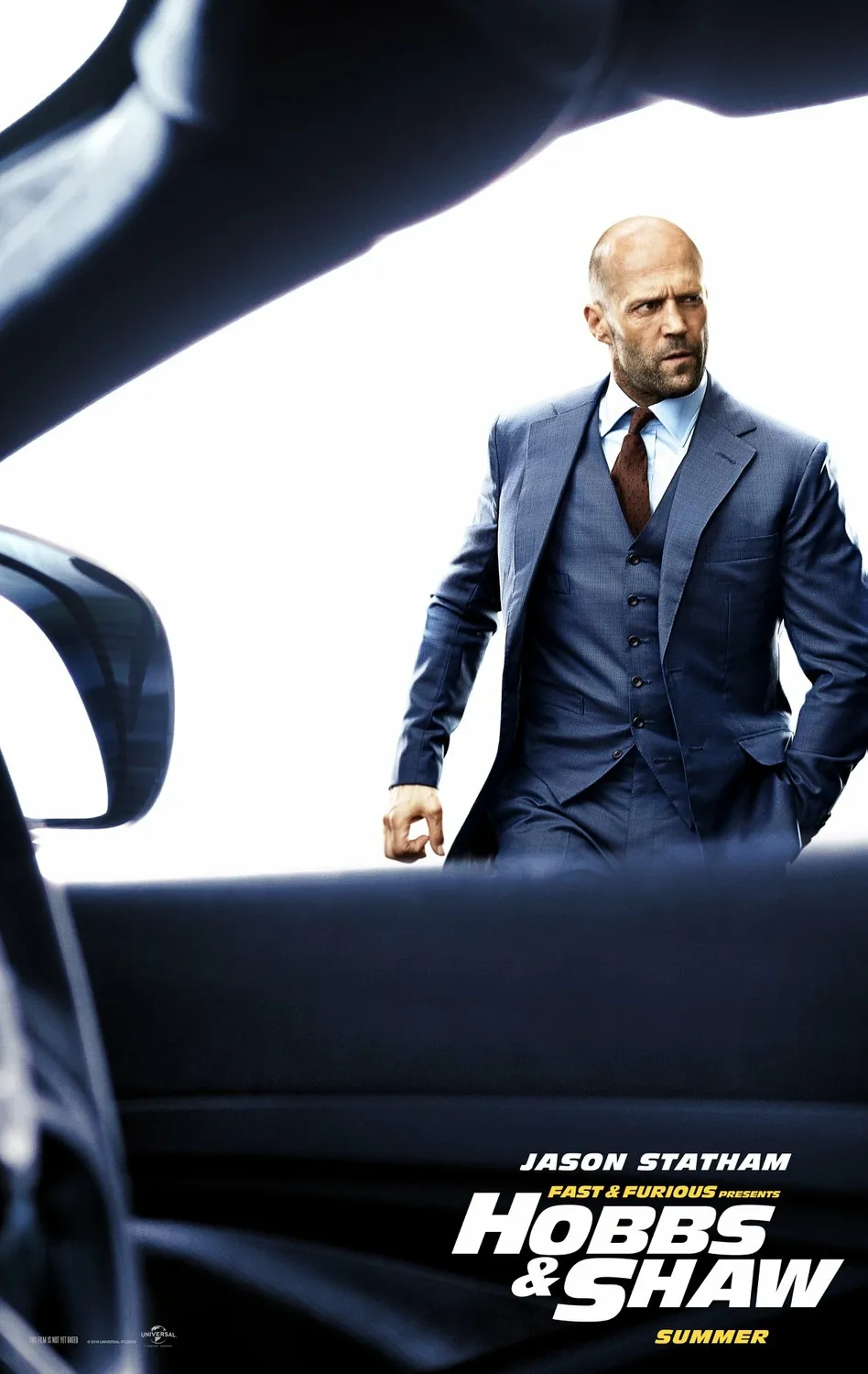
-
Fast & Furious Presents: Hobbs & Shaw
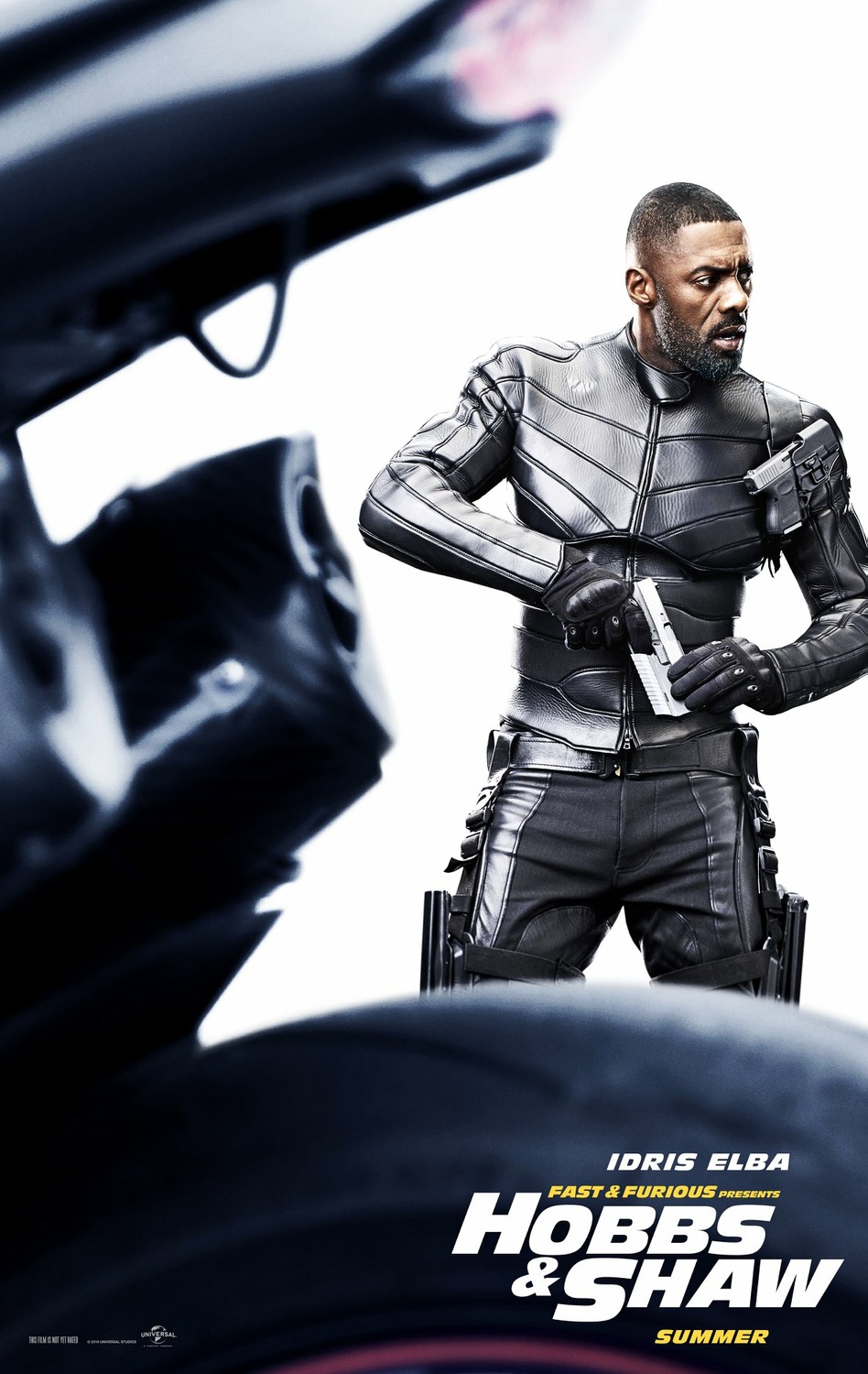
-
Fast & Furious Presents: Hobbs & Shaw
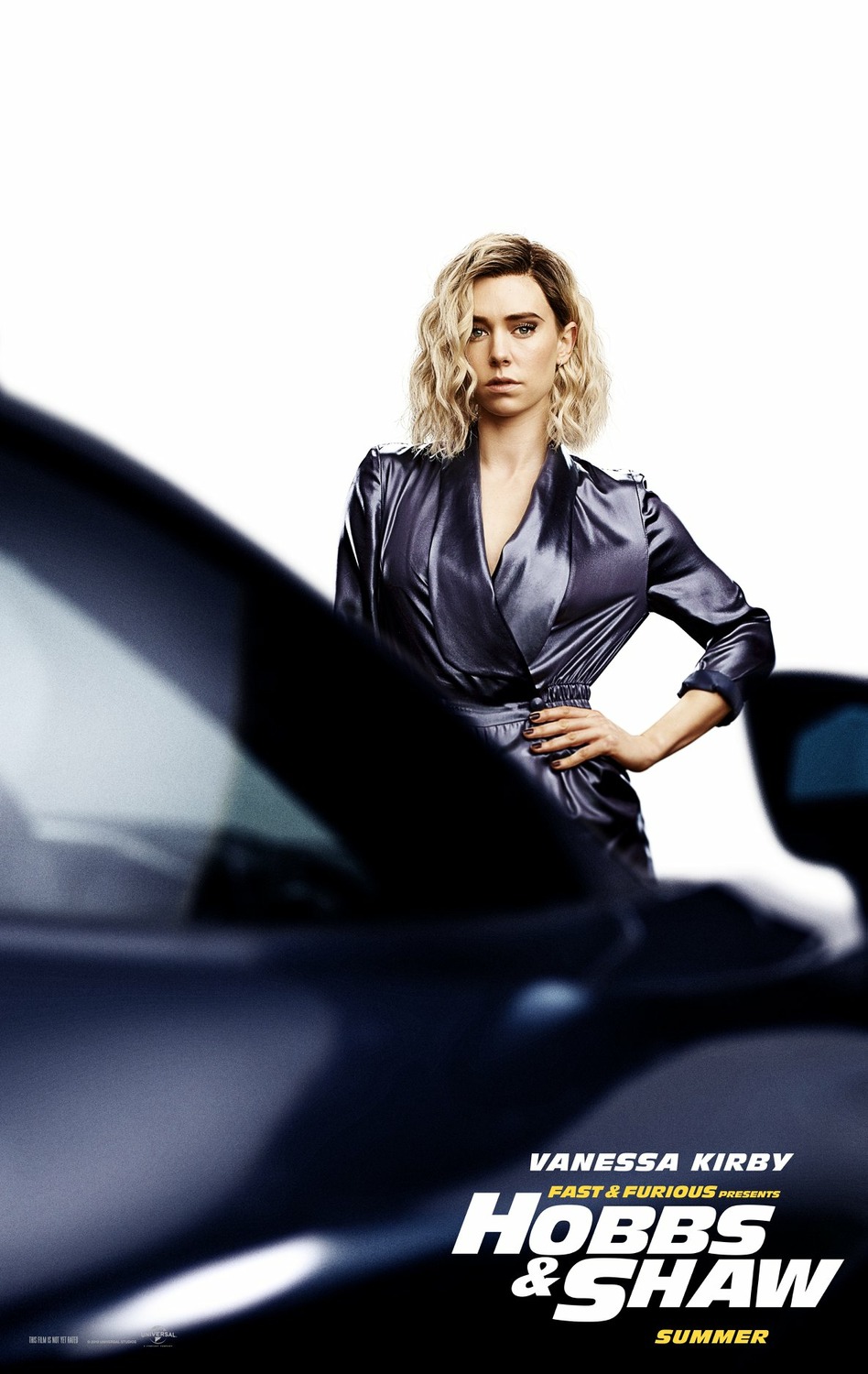
-
Fast & Furious Presents: Hobbs & Shaw
